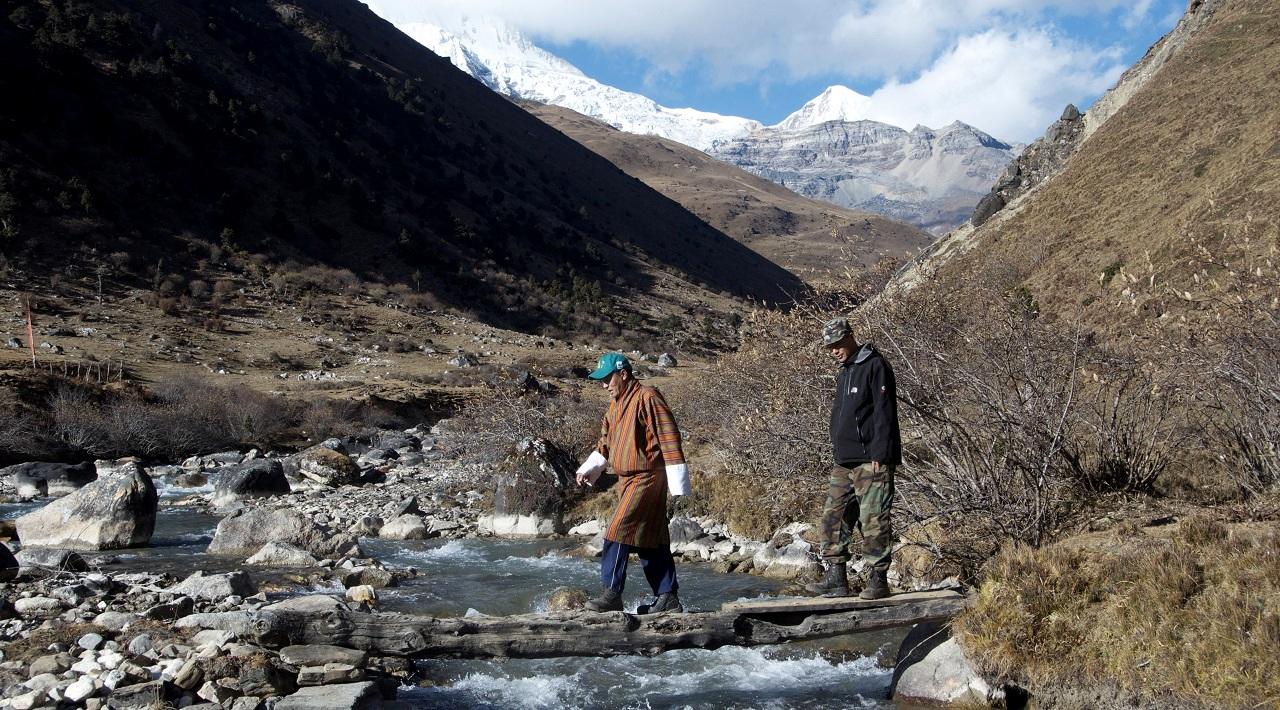
How to avoid overcrowding in tourism destinations is a question which will become more and more relevant, due to the impact of overcrowding on the sustainability and reputation of destinations.
The mountain kingdom of Bhutan is widely regarded a pioneer in taking bold steps to avoid overcrowding. The country’s ecotourism and conservation expert Karma Tshering explains us how Bhutan’s low volume, high value strategy has helped to avoid mass tourism, and where he sees the main challenges and threats for tourism and sustainability in Bhutan.
Key points:
- A visionary policy for tourism based on the concept ‘high value, low volume’ was established and pursued in Bhutan. This is implemented through a fixed pricing policy for each tourist to safeguarded the rich cultural and natural heritage.
- Bhutan demonstrates to the world that supporting conservation is not only about fulfilling the ecological need, but an economic investment endowed with long-term benefits.
- Bhutan now is at a cross roads regarding its sustainable tourism development, threatened by changes in political interests and priorities.
Karma, how does the Government of Bhutan help or serve sustainable tourism companies in the country?
The government has a significant role in the development of tourism in the country. Ever since the inception of tourism in 1974, the government under the leadership of the 4th King of Bhutan has taken a cautious approach to its development.
A visionary policy based on ‘high value, low volume’ was established and pursued. This is implemented through a fixed pricing policy of a minimum of USD 250/day (an all inclusive package) for each tourist in a group of 3 people and above. FITs [flexible independent travel arrangements] are permitted but with a surcharge to the minimum tariff. This enlightened policy has effectively safeguarded the rich cultural and natural heritage and also generated substantial revenue for the country.
The regulations require all tours in Bhutan to be rooted through a local travel company. This mechanism ensures that all payments for tourism services remain within the country, curbing revenue leakage to external sources (a major concern faced in most developing tourism destinations).
This policy empowers the Tourism Council of Bhutan (TCB), the apex tourism agency in the country, to directly oversee all tourism development activities within the country. TCB has the authority to exercise control and the coordination to promote sustainable tourism development.
What are your major concerns regarding the future development of Bhutan’s tourism?
The cautious tourism policy of Bhutan based on the concept of ‘high value, low volume’ has so far been effective in shielding the country from many detrimental impacts. The country enjoys the image as one of the top travel destinations in the world.
Many people affiliate Bhutan as a model for sustainable tourism. I would like to correct that by saying that we are not a model, but have the potential to be a model. We have the requisites to pursue the path to sustainable tourism development.
Our success so far can be attributed to low visitation numbers, the carrying capacity for which was within the existing facilities. However, tourism visitation is growing rapidly, and Bhutan is now at a cross roads. The increased numbers of visitors is associated with many challenges.
The government is yet to develop a precise road map that can capitalize on the opportunities to strengthen Bhutan’s position as a sustainable tourism destination.
Sustainable tourism development to me is not rocket science, and it can easily be achieved through communication and recognizing the role of each of the sectors. For a small country like Bhutan where many people know each other, it is ironic that the much-needed coordination seems to be either weak or almost non-existent in some cases.
This to me is the biggest threat for sustainable tourism development. The change in the political governance of the country from monarchy to democracy from 2008 seems to further jeopardize the future of sustainable tourism development.
Bhutan has all the attributes and opportunities to remain a top end sustainable tourism development destination, yet allowing increase in tourist arrival numbers could lead to mass tourism.
It is imperative for Bhutan to organize a tourism management system that can address institutional capacity for coordination, cooperation, and collaboration.
Learn more about Bhutan’s approach to tourism sustainability in our interview with Karma Tshering.











